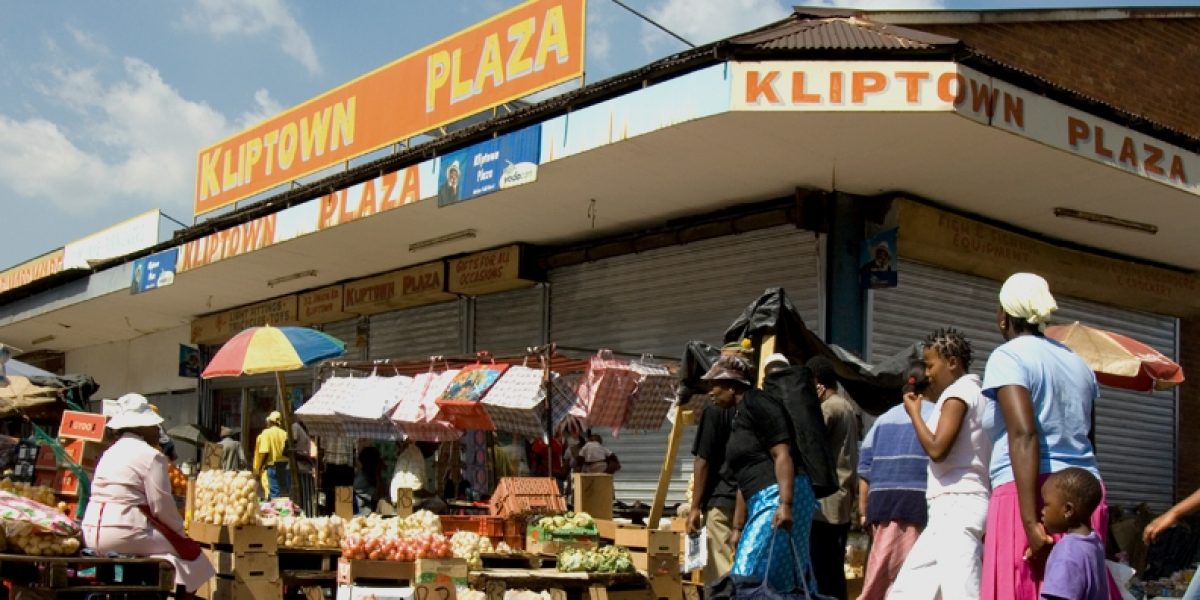At the same time, entrepreneurship and small and medium enterprises (SMEs) are critical to every economy by creating jobs and innovative goods, promoting a competitive environment and economic growth, and facilitating income distribution. The South African government recognises the need for entrepreneurship and SMEs’ engagement with industrialisation efforts to address some of the key socio-economic challenges in the country, particularly poverty, inequality and unemployment. However, South African entrepreneurs still face a number of constraints that hinder greater participation in industrialisation efforts. So, what are the roadblocks standing in the way of entrepreneurs?
During the apartheid era, the domestic economy was protected, relying primarily on capital intensive minerals for export. Diversification into other industrial sectors was limited, and apartheid legislation stymied the growth of black-owned businesses. This led to widespread unemployment, inequality and ultimately low levels of competitiveness and productivity.
Post-1994, the South African government’s primary goal was to reverse isolation and low growth and to signal openness to the world. Yet, changing the institutionalised structure of the economy has proven difficult. Industrial policy post-1994 focused on trade liberalisation and export promotion. This meant reducing tariffs and signing free trade agreements (FTAs) and bilateral investment treaties (BITs). Policy makers gradually began to raise concerns that fully liberalising trade might hinder industrial development through competition with industrialised countries. The current industrial strategy aims not only to promote exports but also to deepen localisation in labour intensive industries. It is still too early to know whether South Africa’s current industrialisation strategy has been able to balance liberalisation and protectionism.
At the same time, the business environment has further hindered South Africa’s industrial entrepreneurs. The World Economic Forum’s (WEF) Global Competitiveness Index (GCI), measuring the competitiveness landscape of 138 economies, ranked South Africa 45th in the 2016/2017 index. While larger companies can rely on economies of scale to overcome some of these challenges, all businesses, including entrepreneurs and SMEs, are affected by the overall environment. How?
| WEF Global Competitiveness Index 2016/2017 – Select Indicators, South Africa | ||
| Description | Rank /138 | Score (1-7) |
| Institutions | 40 | 4,5 |
| Infrastructure | 64 | 4,2 |
| Macroeconomic Environment | 79 | 4,5 |
| Health and Primary Education | 123 | 4,3 |
| Higher Education and Training | 77 | 4,2 |
| Labour Market Efficiency | 97 | 3,9 |
| Financial Market Development | 11 | 5,2 |
| Business Sophistication | 30 | 4,5 |
| Innovation | 35 | 3,8 |
Source: World Economic Forum, ‘Global Competitiveness Index 2016/2017’, accessed 15 December 2016
Limited entrepreneurship education: Total Early-stage Entrepreneurial Activity (TEA), measuring the percentage of the population between the ages of 18 and 64 who are in the process of starting a business or who have recently started a business, remains low in South Africa. The country’s TEA was 9.2% in 2015. This is roughly half the average for Africa. Low entrepreneurial activity in South Africa is compounded by a lack of entrepreneurship education. South Africa’s education system does not necessarily encourage creativity, self-sufficiency and personal initiative. What’s lacking is adequate training on market economic principles and new firm creation and teachers competent about entrepreneurship.
Constrained financing: Access to finance is a key constraint to entrepreneurship. This challenge is more pronounced following the global financial crises, with international agreements, such as Basel III, outlining stricter conditions on financial institutions to make them more risk-averse. Consequently, financial institutions are more conservative and constrained in their financial capacities. Access to finance in South Africa is constrained in many ways: insufficient knowledge about funding opportunities and procedures, inadequate availability of start-up funds, inefficient administration and unaccountability of funds by government institutions, the highly risk-averse nature of both private and public financial institutions, and the requirement of physical property as collateral for a loan that most entrepreneurs lack.
Lack of co-ordinated government support for entrepreneurs: A plethora of support frameworks, acts, institutions and programmes exists. Different levels of government offer different support programmes. Although the government has made progress in streamlining its strategies for small businesses by combining different agencies and establishing a dedicated department, room remains for greater co-ordination amongst various programmes for SMEs and for a better centralisation of information. An overarching framework for monitoring the various programmes in place would assist too.
Yet, in the face of these challenges, opportunities abound for South Africa’s entrepreneurs. These include need-based social enterprises that combine commercial strategies to address human and environmental well-being. Iyeza Express, for example, delivers medication in townships in Cape Town via bicycles, providing a much-needed service for local residents while also creating employment opportunities. However, making the most of these opportunities to unleash the power of entrepreneurship to foster jobs and prosperity requires, first and foremost, tackling the roadblocks standing in the way.








